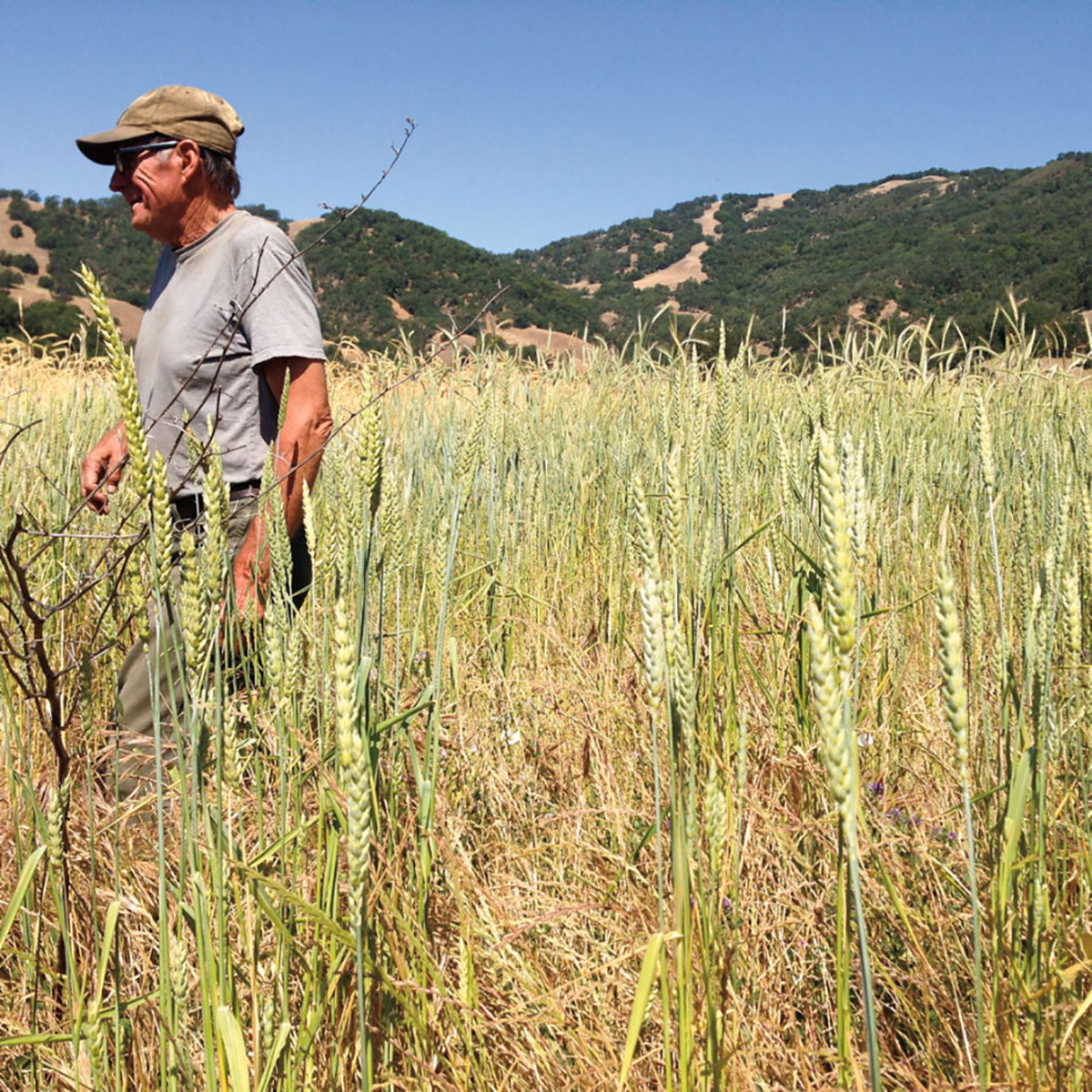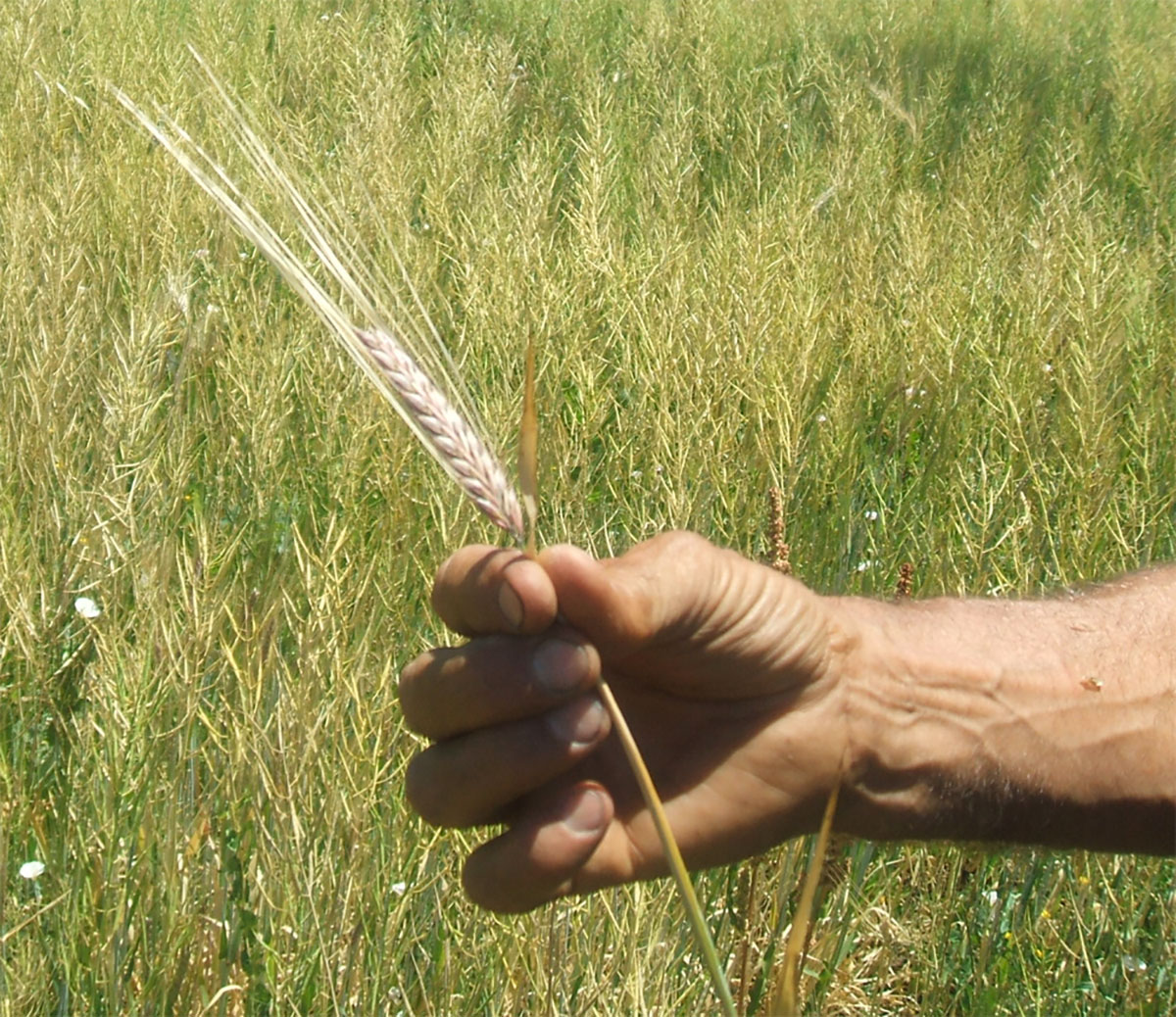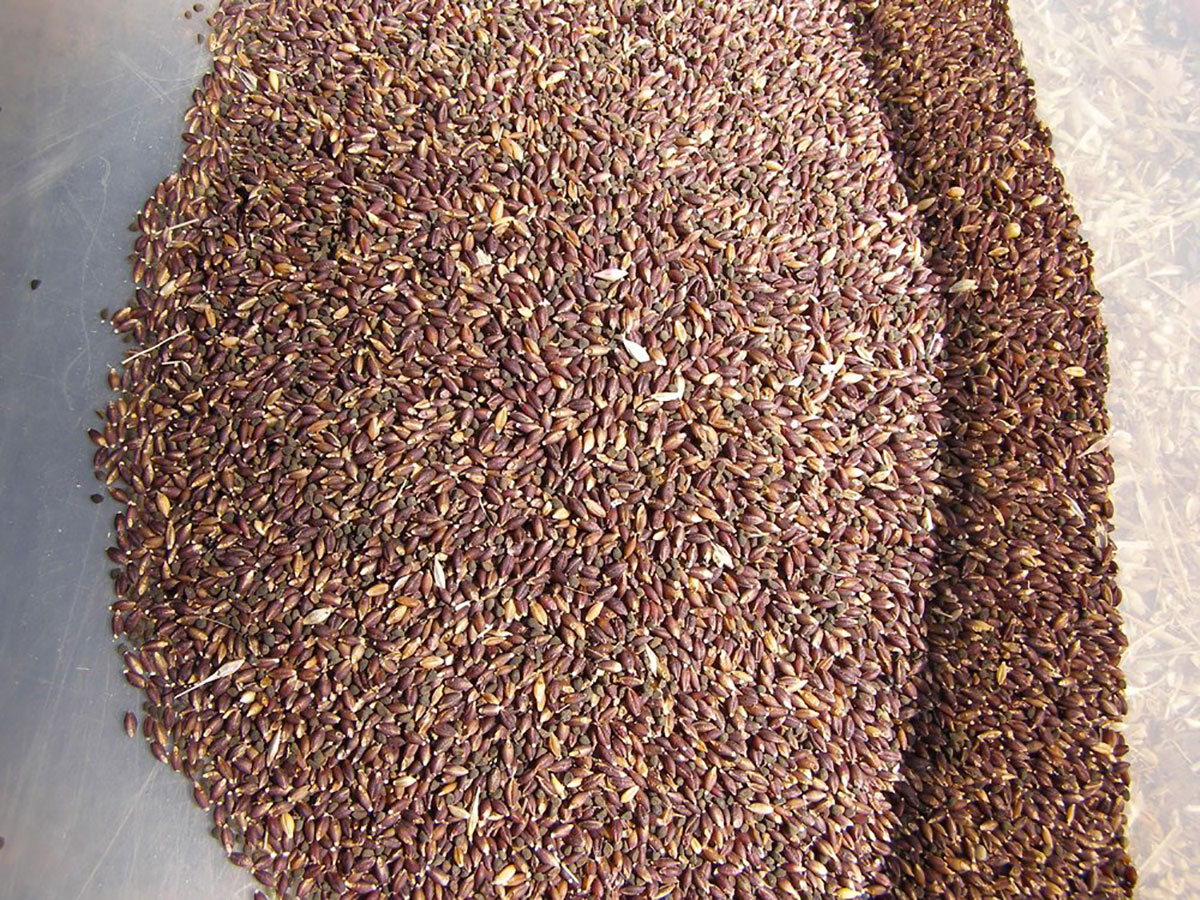Active Optimism: The Mendocino Grain Project

by Elizabeth Archer
Bread is so central to our human experience that the price of grain is often cited as the single most important factor that contributes to political unrest. The expectation, everywhere, is that grain should be cheap. If the poorest people in the world can’t afford it, get ready for a revolution. So it’s no surprise that over the centuries, humans have found ways to reduce the price of growing, processing, and storing grain, all while increasing yields. But at what cost?
Some argue that the increase in gluten intolerence is the result of modern milling, which strips most components away from the wheat kernel and grinds what’s left into a fine white powder void of most nutritional content. Additionally, most wheat grown today is a hybrid developed some 40 years ago and bears only a glancing resemblance to the grains our grandparents ate. So yes, bread is cheap, but our bodies are picking up the tab.
Enter Doug Mosel, local elder, mentor, and tireless renegade in the fight to reclaim real food.
Mosel was a healthcare consultant when he discovered “The Work that Reconnects,” by Deep Ecologist Joanna Macy. “Getting exposed to that work had a profound impact on my life,” says Mosel, who quit his consulting practice and went to work for Macy for 10 years.
Doug Mosel in the fields, ©Eat Retreat| Triticale, a hybrid of wheat and rye| Doug Mosel| Purple Prairie Barley
He moved to Mendocino County in 1999, where he helped coordinate Mendocino County’s successful Measure H campaign to ban GMO crops. That introduced him to various farmers markets around the county, and it wasn’t long before Mosel was farming for himself. Says Mosel, “I grew up on a farm in Nebraska, and it was still in my blood.” Mosel helped found the Anderson Valley Foodshed, and after realizing there was a grain gap in local food production, he decided to try his hand at it.
Mosel bought a combine and a seed cleaner and grew his first experimental crops of wheat and oats in 2008. He credits a lot of the inspiration for what he does to The Whole Grain Connection, a nonprofit by Monica Spiller, which identifies varieties of wheat that are ideal for our growing conditions. Mosel has grown numerous varieties—one year he planted 21 types of grains and lentils—but the first crop he planted in substantial volume was Sonora wheat, likely California’s oldest variety.
Soon after Mosel planted his first field, another farmer found out he had a combine, and they struck up a deal to work together. Other farmers approached Mosel about growing grain, and one cold wintry day, they convened the first of several annual local grain growers meetings at Nelson Vineyards. He founded The Mendocino Grain Project with John Gramke and Sophia Bates in 2009, offering the first CSA-style grain share in 2010. Today, Mosel is the project’s principal farmer, grain cleaner, and miller. He has worked with farmers in five North Coast counties, including harvesting, cleaning and milling grain for those who want to grow grain but don’t have the equipment necessary to process it.
What Mosel plants depends on varieties he likes, how much acreage is available, and growing conditions. This year, he planted just three varieties: Sonora, the most versatile and in-demand grain he grows; Red Fife, a Canadian landrace wheat; and Ethiopian Blue Tinge Emmer, “a beautiful purple-hued wheat,” says Mosel. If there is enough rain and available land, he hopes to expand production in 2018 to include more wheat varieties, rye, and lentils.
Flour from The Mendocino Grain Project is not currently available via CSA, but it can be purchased at the Ukiah Natural Foods Co-Op and the Westside Renaissance Market. Mosel also sells directly to buyers, including Schat’s Bakery—which bakes a 100% local loaf on Thursdays—and other bakers and chefs.
And, while it may carry a higher price tag than a bag of bleached white flour, the prices are remarkably reasonable: Sonora is sold for $2.05/lb at the Renaissance Market.
Mosel is passionate about what he does because people love the grains and “it’s an antidote to Big Grain—that large anonymous system of grain production—economically, nutritionally, and environmentally.”
Economically, local grain makes our regional food economy more resilient. Nutritionally, there’s little argument that whole grains are healthier, says Mosel, but “there is no official definition of ‘whole grain,’ so we can’t rely on labels.” And, over the last 10 years, the chemical residue in wheat-based foods has risen significantly, indicative of the environmental impact as well. Conventionally produced grain uses a lot of chemicals and a lot of water.
“We know these old varieties can be dry farmed,” says Mosel. “They’re less demanding of water and fertilizer than modern varieties that were bred for increased production.” Small-scale farmers can choose heirloom varieties known for heat and drought tolerance, which is especially important in the face of climate change.
“To avoid serious threat to life as we know it on this planet,” says Mosel, “carbon emissions must be dramatically reduced or eliminated in the next 15-20 years.” This is the motivator that drives Mosel these days. He hosts the Agriculture and Ecology Hour on KZYX, and has committed future shows to discussion about and solutions for moving toward zero-emissions food production. His ideas include animal and human power, as well as air- and solar-generated electric motors. These methods may require small-scale growing, which he sees as a benefit. The more local growers there are, the more resilient the food system is.
Mosel encourages everyone to work toward lowering their own emissions and to use their purchasing and lobbying power to influence the food system. Says Mosel, “Our dollars speak loudly in the choices we make about what we buy and where we buy it.”
Mosel chooses optimistic action over passive defeat. He is animated about his dreams for the future, saying, “It’s possible. It can be done. But it’s going to take all the creativity and passion that we can muster to make it happen.”
Mendocino Grain Project | PO Box 1566, Ukiah | mendocinograin.net
Elizabeth Archer is an enthusiastic eater and promoter of the local food scene in Mendocino County. She and her husband run Carson and Bees, a beekeeping operation in Ukiah.



